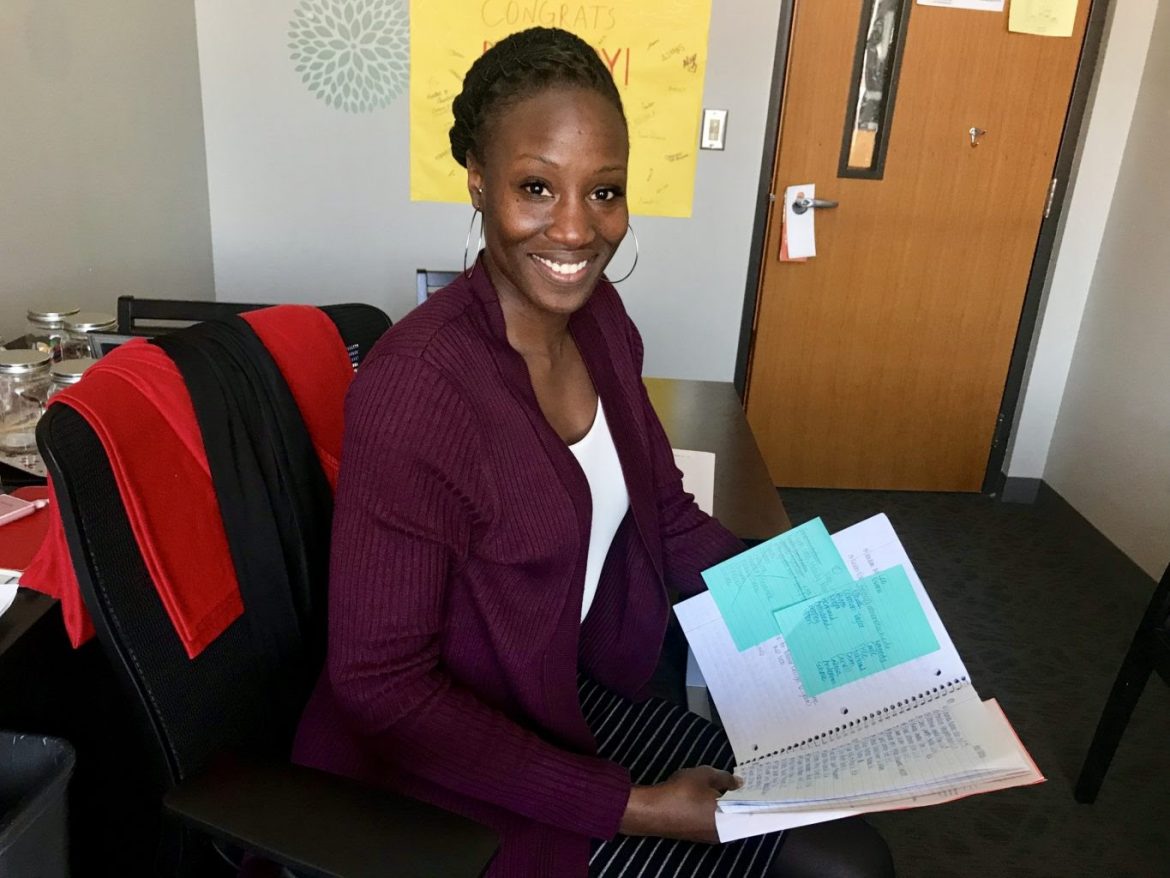Clarke Central High School Professional Counselor Dr. Ashlee Holsey sits in her office on Jan. 24, 2019. Holsey, along with the rest of the CCHS counseling department, has worked to support students while CCHS remains in digital learning. “A lot of students are expressing issues related to grief and loss, the loss of connection, the loss of normalcy, the loss of family members,” Holsey said. “Some of them are now helping their families to provide financially because their parents have lost jobs, just you know, a loss of a sense of their identity in terms of school, some of the extracurriculars and things like that, if they are not engaged in sports.” Photo courtesy of Dr. Ashlee Holsey
As online learning continues, the Clarke Central High School counseling department has noticed a lack of student motivation in academics and a rise in mental health concerns.
“We’re seeing a lot of issues regarding student motivation, completing work, stress of course, but there’s definitely been a rise in the lack of student motivation across demographics, across the different types of students. As a result, there’s a rise in the number of students who are not attending classes, whose grades have dropped and things of that nature.”
— Dr. Ashlee Holsey,
CCHS Professional Counselor
According to CCHS Professional Counselor Dr. Ashlee Holsey, the COVID-19 pandemic has created a mental health crisis within the student body, negatively affecting students’ grades, relationships and ultimately their sense of self.
“We’re seeing a lot of issues regarding student motivation, completing work, stress of course, but there’s definitely been a rise in the lack of student motivation across demographics, across the different types of students,” Holsey said. “As a result, there’s a rise in the number of students who are not attending classes, whose grades have dropped and things of that nature.”
CCHS Assistant Principal Summer Smith has also seen a change in students’ academic performance and mental health.
“I see that kids who normally would have been passing — who in the past, their track record A, B, maybe even C’s — make grades like 8’s, 13’s, 11’s. And so it’s an engagement problem,” Smith said.
While students struggle in digital learning, Holsey encourages them to prioritize self-care.
“I think (self-care is) really being intentional about how you’re feeling, and taking care of yourself as you need to even if it’s during class,” Holsey said. “Because to me, those are advantages that we definitely wouldn’t see during the traditional school day, and so I think self-care can look different.”
CCHS freshman Eli Crowder says that being in online school has given him more time to take care of himself.
“I’ve been reading more, so that could be self-care,” Crowder said. “I’ve been seeing certain friends more. Ones that don’t have (COVID-19). I’m trying to pick up some hobbies, just find stuff to do other than (be on) my phone.”
Holsey thinks it is better to prioritize self-care during digital learning rather than stress over a return to campus in the spring.
“If the numbers are way up, and (it is) not safe for us to be in the building, I think (returning to campus) could be more of a detriment. I think it’s worse for kids to feel hopeful that we may return and then have to find out again that we won’t,” Holsey said. “I think it’s a mixed bag because I could also say that while there are a lot of students who are struggling, there are some who are thriving in this type of environment.”
